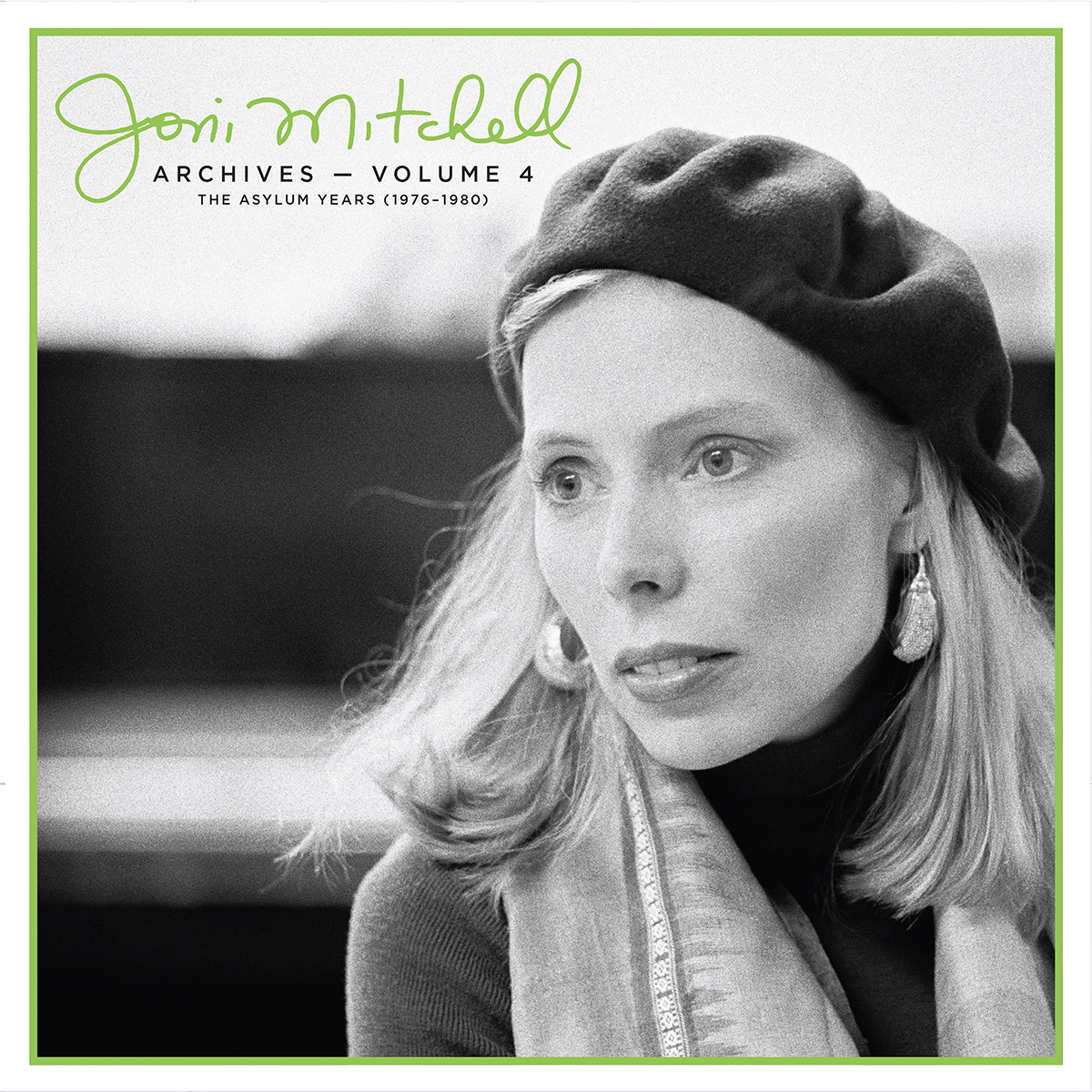A good deal of the contents of the six discs consists of live recordings, beginning with her tagging along on Bob Dylan’s Rolling Thunder Revue, then continuing on her own tour to promote The Hissing Of Summer Lawns. She tries out some new material, including “Coyote”, on its own and in a medley with what would become the title track of Don Juan’s Reckless Daughter. (Rather than the now-familiar clip of her playing it at Gordon Lightfoot’s house, or even at The Last Waltz, she pulls out “Woman Of Heart And Mind”.) Most of a Boston show with the L.A. Express takes up the second disc, continued from the first, with performances pulled in from other stops on the aborted tour, and it’s most interesting when she plays on her own. Nearly unplugged arrangements of “Shadows And Light” and “Harry’s House” are very nice, as are early performances of “Hejira” and “Talk To Me”. (Apparently the chicken noises were entrenched from the beginning.)
Fans of Hejira will drool over disc three, which begins with acoustic demos of seven of the album’s songs (Chaka Khan helps out on “Black Crow”) and three that would end up on the next. It goes on to include an intro and two songs from a stop on the second leg of the Rolling Thunder Revue, and ends with two rough mixes from the album sessions: “Refuge Of The Roads” with more horns (and without Jaco Pastorius) and “Don Juan’s Reckless Daughter”.
There are only two outtakes from the Don Juan sessions: a rough mix of “Otis And Marlena” and a 12-minute piano improvisation titled “Save Magic” that would form the basis of “Paprika Plains”. Then she was off to work with Charles Mingus, and we finally get to hear some lost sessions with such jazz legends as Tony Williams, Gerry Mulligan, Stanley Clarke, and John McLaughlin. One version of “Sweet Sucker Dance” is just drums and her layered vocals, while “A Good Suit And A Good Haircut” incorporates more of the man’s “raps”, and “Sue And The Holy River” is a lovely piano exploration. We also get to hear excerpts from a festival show where she played some of her new Mingus-infused compositions and collaborations in the occasional company of Herbie Hancock on grand as opposed to electric piano. “The Dry Cleaner From Des Moines” is a cappella and wonderful, and she encourages the audience to provide wolf noises to “The Wolf That Lives In Lindsay” while she tunes her guitar mid-performance, and they howl along with the tape too. (A session outtake provides a mix without the wolves.)
Most of the last two discs are devoted to a Forest Hills show in 1979, augmented by other appearances from the same tour, presenting something of an alternate Shadows And Light, but with a few songs that weren’t on that album. (“Jaco’s Solo” was one of those, probably because it took a cacophonous, effects-laden trip to Hendrix’s “Third Stone From The Sun”.)
This was Joni’s most challenging era yet for fans, certainly compared to the previous eight years of her public career, and the music within this set reflects that, as well as her descending range. Still, for those willing to dive further in, there are indeed gems to be found, as well as takes on more familiar material (two versions each of “Free Man In Paris” and “Help Me”, but three of “Big Yellow Taxi”). It’s fascinating to hear her create.
Joni Mitchell Archives—Volume 4: The Asylum Years (1976-1980) (2024)—3

No comments:
Post a Comment